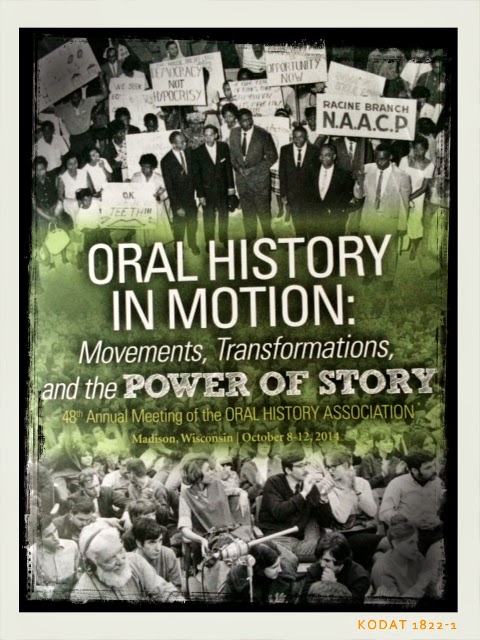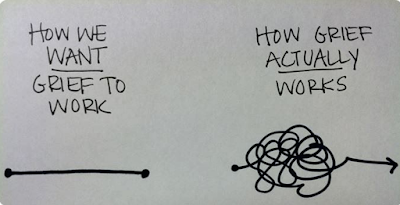Piracy or Exchange? The Fate of Ideas in the Avaricious Academy
Recently, a friend and fellow historian read a section of my manuscript for me. She made an acute observation about the ways my protagonists consistently dug deep into the past whenever faced with a new conflict or challenge. "Interesting how they always take the long view," she noted in a comment.
The long view. I love the phrase. So much so, in fact, that I am determined to use it. I might even incorporate it into the title of my book when it emerges. I will acknowledge my colleague's general brilliance and specific contribution in the acknolwedgements that preface the book. I will figure out a way to cite her. If her phrase makes it into the title, I will buy her a bottle of wine. As a tenured faculty member at a research university, my colleague will probably feel duly recognized and appreciated.
This, after all, is part of our job -- to exchange ideas freely for the benefit of others. As a tenure-track faculty member at a regional public university, I too, am committed to building and developing ideas -- others as well as my own. I have read and commented on her work and I bring to it a background and way of looking at things that has probably helped her get a new perspective on some sticky issues. This is how the academy works.
No. This is how the academy worked. Past tense.
This economy of ideas only operates effectivey and ethically when the rules are consistent. And these days, they are anything but.
Piracy of ideas is occuring everywhere in and around the academy. While it may be unconscious or inadvertent, the practice is an insidious and damaging artifact of the days when the people who trained to be scholars actually got to become scholars and when the people producing ideas taken up in the academy were clearly and explicitly connected to, representing and renumerated by the academy.
These days, graduate students, underremployed and unemployed Ph.D.s and community partners and activists all witness the casual usurpation of their ideas, their research and their passion --- and little or none of the benefits of their work comes back to them.
Some of the freshest and most interesting ideas and inspiration for work in public history come from those on the margins of academe. Graduate students can't find an archive and so they decide to crowd-source one, only to find that their mentors and advisors want in on the sources once the arduous work of building trust is complete. Activists develop a way to frame issues and share it informally only to see their words on a poster advertising an event in which they have no involvement. An eager and earnest candidate appears at a campus visit armed with an arsenal of specific suggestions for how to build a public history program -- they don't get the job but they do get to hear their language and labored-over plans bandied about as program policy a year or two later.
Scholars sitting comfortably inside the academy are doing what scholars have always done -- assuming a certain amount of trust and give-and-take in the exchange of ideas. But the terrain has changed dramatically. Those producing and "sharing" ideas are not compensated or valued in equal ways.
Worse, when the ideas themselves are proffered up in the hopes of admittance to the halls of the university, the taking itself represents exploitation of the worst kind. It steals the best of what those on the edges have to offer and presents it as evidence of the value of those on the inside.
As one thoughtful, acute observer of these dynamics says, "there's a very specific vampire-esque feeling to working with academic institutions."
We think we're building relationships but in fact, we're sucking your lifeblood.
So so so so ick.
The long view. I love the phrase. So much so, in fact, that I am determined to use it. I might even incorporate it into the title of my book when it emerges. I will acknowledge my colleague's general brilliance and specific contribution in the acknolwedgements that preface the book. I will figure out a way to cite her. If her phrase makes it into the title, I will buy her a bottle of wine. As a tenured faculty member at a research university, my colleague will probably feel duly recognized and appreciated.
This, after all, is part of our job -- to exchange ideas freely for the benefit of others. As a tenure-track faculty member at a regional public university, I too, am committed to building and developing ideas -- others as well as my own. I have read and commented on her work and I bring to it a background and way of looking at things that has probably helped her get a new perspective on some sticky issues. This is how the academy works.
No. This is how the academy worked. Past tense.
This economy of ideas only operates effectivey and ethically when the rules are consistent. And these days, they are anything but.
Piracy of ideas is occuring everywhere in and around the academy. While it may be unconscious or inadvertent, the practice is an insidious and damaging artifact of the days when the people who trained to be scholars actually got to become scholars and when the people producing ideas taken up in the academy were clearly and explicitly connected to, representing and renumerated by the academy.
These days, graduate students, underremployed and unemployed Ph.D.s and community partners and activists all witness the casual usurpation of their ideas, their research and their passion --- and little or none of the benefits of their work comes back to them.
Some of the freshest and most interesting ideas and inspiration for work in public history come from those on the margins of academe. Graduate students can't find an archive and so they decide to crowd-source one, only to find that their mentors and advisors want in on the sources once the arduous work of building trust is complete. Activists develop a way to frame issues and share it informally only to see their words on a poster advertising an event in which they have no involvement. An eager and earnest candidate appears at a campus visit armed with an arsenal of specific suggestions for how to build a public history program -- they don't get the job but they do get to hear their language and labored-over plans bandied about as program policy a year or two later.
Scholars sitting comfortably inside the academy are doing what scholars have always done -- assuming a certain amount of trust and give-and-take in the exchange of ideas. But the terrain has changed dramatically. Those producing and "sharing" ideas are not compensated or valued in equal ways.
Worse, when the ideas themselves are proffered up in the hopes of admittance to the halls of the university, the taking itself represents exploitation of the worst kind. It steals the best of what those on the edges have to offer and presents it as evidence of the value of those on the inside.
As one thoughtful, acute observer of these dynamics says, "there's a very specific vampire-esque feeling to working with academic institutions."
We think we're building relationships but in fact, we're sucking your lifeblood.
So so so so ick.









Comments
Post a Comment